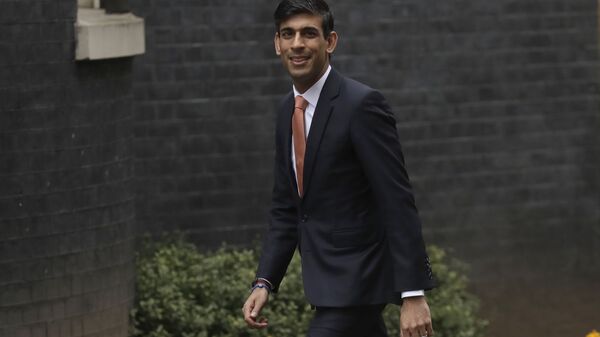Britain’s economy declined by a record 20.4% in April, the biggest decline in GDP the country has ever seen, according to official figures released by the Office for National Statistics (ONS).
Britain’s economy shrank by a record 20.4% in April as the first full month of the coronavirus lockdown triggered an economic crash three times greater than the 2008 financial crisis.
The decline was the largest since comparable monthly records began in 1997 and was more than triple the previous record fall of 5.8% in March, when the lockdown was imposed late in the month.
The ONS said the "historic" fall affected virtually all areas of activity as the government imposed tight controls on business and social life to limit the spread of the disease.
News of this slump comes as the number of people claiming unemployment benefits rose from 856,500 to 2.1 million in April.
— Office for National Statistics (ONS) (@ONS) June 12, 2020
The country’s services sector shrank by almost 20%, fuelled by the closure of non-essential shops on the high street, pubs, restaurants and hotels, and evaporating car sales.
Air transport shrank by 92.8% and following the closure of hotels, pubs, bars and restaurants, the accommodation and food services sector shrank by 88% during this month.
However according to the BBC, analysts said April was likely to be the worst month, as the government began easing the lockdown in May.
Prime Minister Boris Johnson said he was "not surprised" by the figures. "We've always been in no doubt this was going to be a very serious public health crisis but also have big, big economic knock-on effects.
"The UK is heavily dependent on services, we're a dynamic creative economy, we depend so much on human contact. We have been very badly hit by this."
Chancellor Rishi Sunak said the government had protected millions of jobs through its emergency financial support schemes, with almost nine million people currently having 80% of their monthly salary up to £2500 paid by the government.
The scheme has cost £19.6bn so far, while a similar programme for self-employed workers has seen 2.6 million claims made worth £7.5bn.
“We’ve set out our plan to gradually and safely reopen the economy. Next week, more shops on the high street will be able to open again as we start to get our lives a little bit more back to normal,” Sunak said.
This week the OECD said the UK economy would shrink by more than any other developed country as businesses struggled to recover from the pandemic. It predicted GDP would contract by 11.5% in 2020 or 14% if the virus returned and forced the government into a second lockdown.
According to the Guardian, the Bank of England has estimated GDP could contract by 25% in the second quarter and unemployment more than double, as the country plunges into the deepest recession for more than 300 years.
Economists warned that a second wave of coronavirus infections could lead to further economic damage.
Suren Thiru, head of economics at the British Chambers of Commerce, said “Some firms, including those in our hospitality, leisure and tourism industries, may remain closed for some time and will require flexible and open-ended government support to weather the economic storm.”




